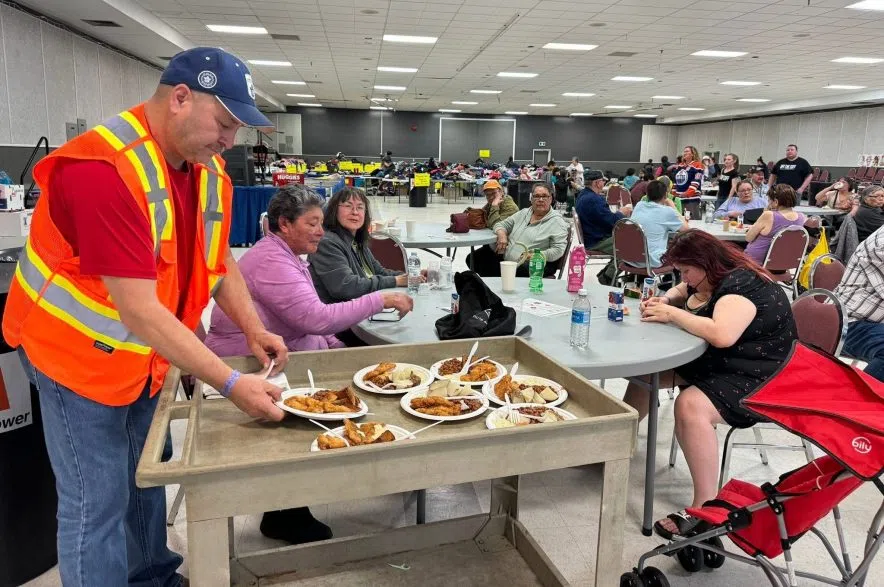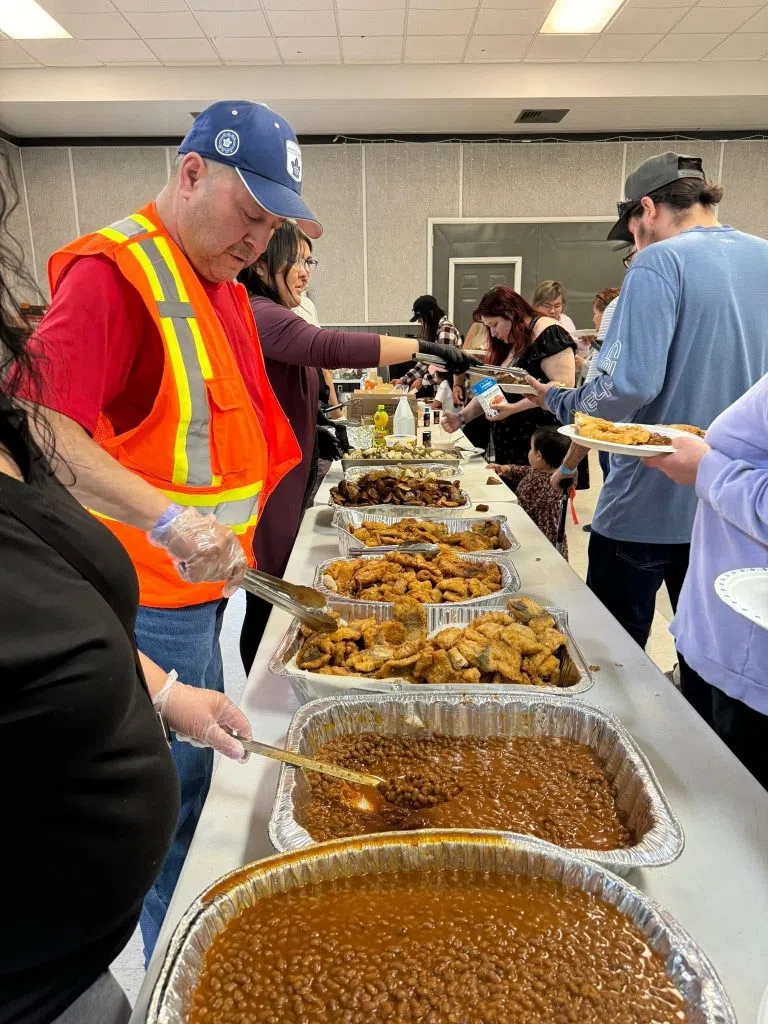As wildfire evacuations displace families across Saskatchewan, one Cree fisherman from Southend, a town in northeast Saskatchewan, is offering comfort the way he knows best: fish.
Tommy Bird, a commercial fisherman and former world champion dog musher, has been leading a grassroots effort to feed wildfire evacuees from Indigenous communities with traditional meals of freshly caught fish.
“When you eat that fish, it reminds you of home,” Bird said. “It brings back memories, brings people together, and helps ease the stress.”
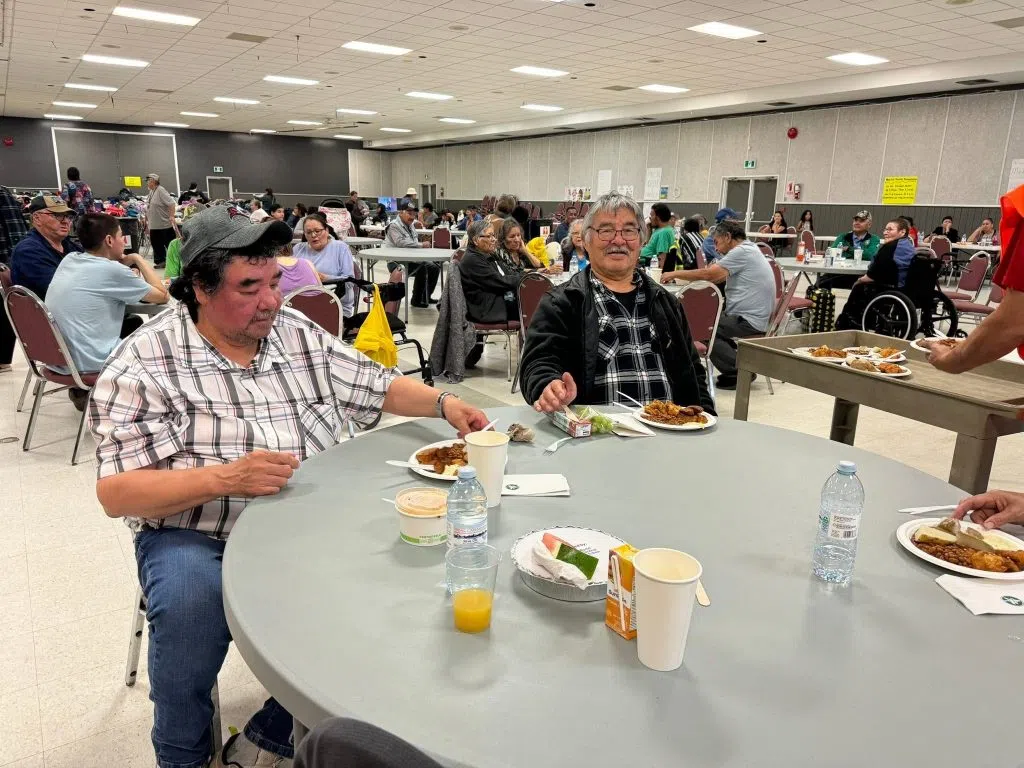
The Prince Albert Exhibition Centre was filled with laughter and cheer when the fish fry arrived. (Tommy Bird/submitted)
Read more:
- Saskatchewan raises $643,156 in one day for wildfire relief
- Evacuees return home, La Ronge Health Centre slowly re-opens
- Free concert series provides uplifting sendoff for evacuees
Bird and a group of volunteers have been fishing, preparing the fish, and delivering meals to evacuation centers and First Nations where evacuees have been relocated. He says the effort is community-driven and deeply rooted in Indigenous culture.
“We’re not a business. We just go do it,” Bird said. “We’re commercial fishermen by trade, but when there’s a need, everyone just goes into action.”
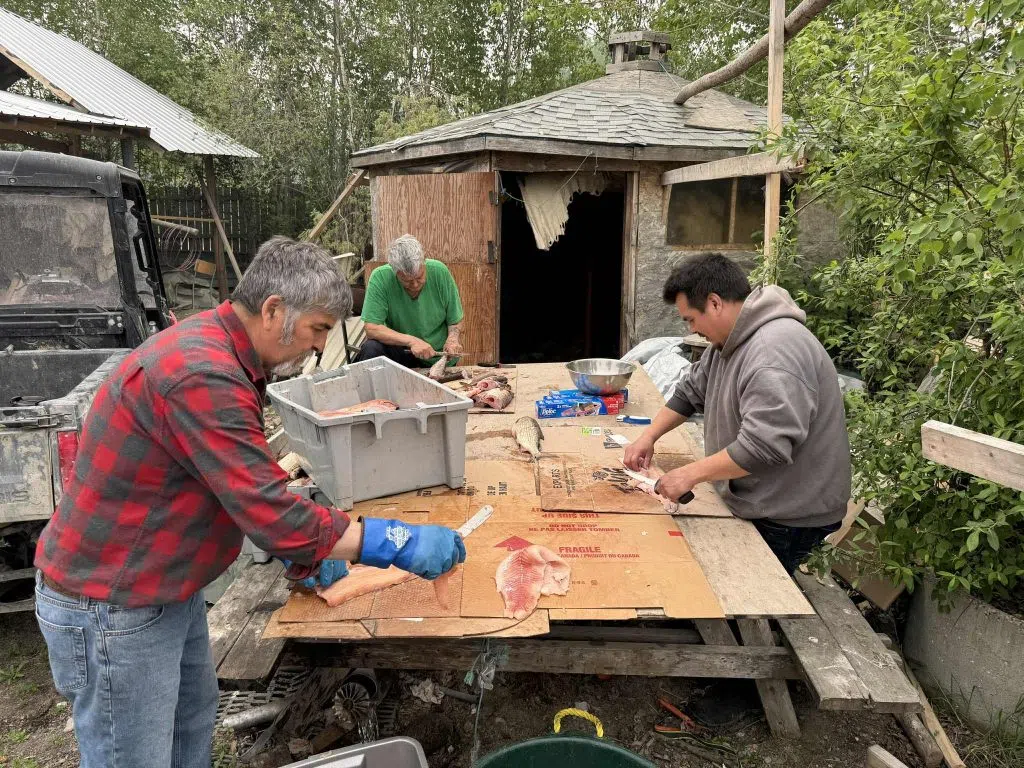
Tommy Bird (left) Elder Lawrence Adam (middle) and Rodd Cook preparing the fish. (Tommy Bird/submitted)
It’s a major operation. Bird says it takes two boats and four people on the water to set the nets, haul in the fish, and clean and debone them all by hand. From there, the fish are frozen or cooled with ice and transported to kitchens where teams prepare hundreds of meals.
At a recent event in Prince Albert, Bird said they served fish to evacuees from communities like Muskoday, Wahpeton and Montreal Lake. Volunteers also stepped in to cook 150 pounds of potatoes and multiple trays of beans. The gym was full of laughter, donated clothes, and most importantly, fish.
“It’s like medicine for our people,” Bird said. “A lot of our elders say when they’re in the city, eating restaurant food doesn’t feel like eating. But when they get traditional food like wild meat or fish, it helps their body and spirit.”
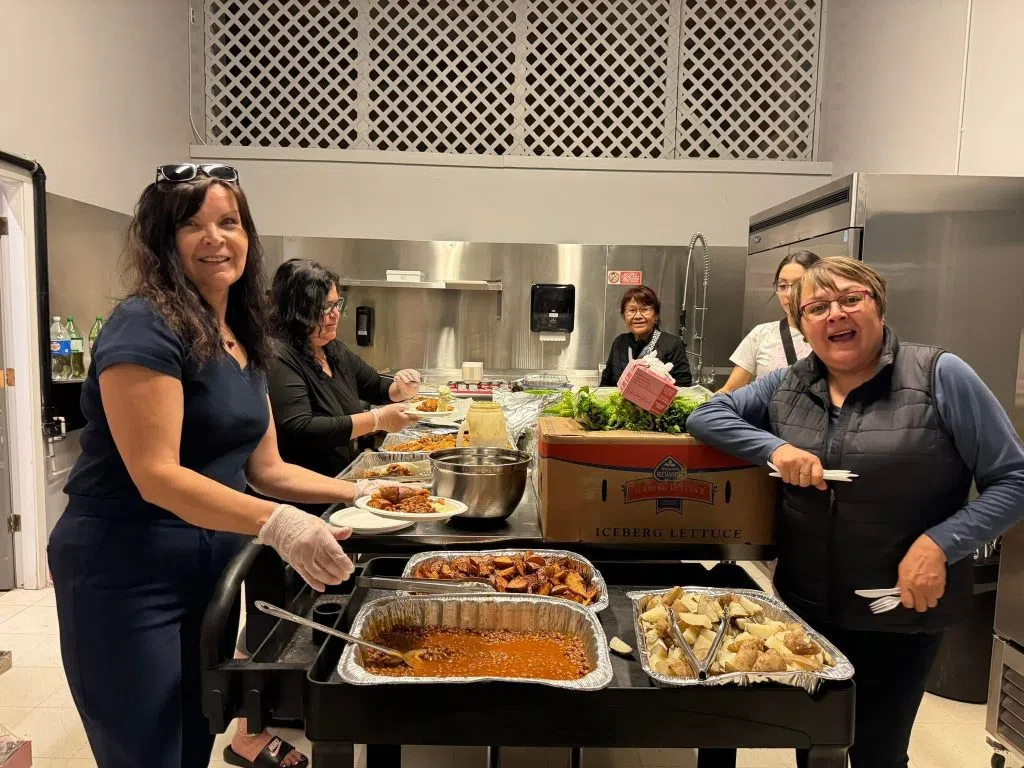
Kitchen staff and volunteers always have a smile on their face while helping evacuees. (Tommy Bird/submitted)
Bird said he covers much of the operation out of pocket, though some support came from the Peter Ballantyne Cree Nation office and other local sponsors. He credits his brother George and several other community members for helping prepare and distribute the meals.
This isn’t the first time Bird’s stepped up during a crisis. Bird and his wife also cooked for thousands after the James Smith Cree Nation stabbings in 2022.
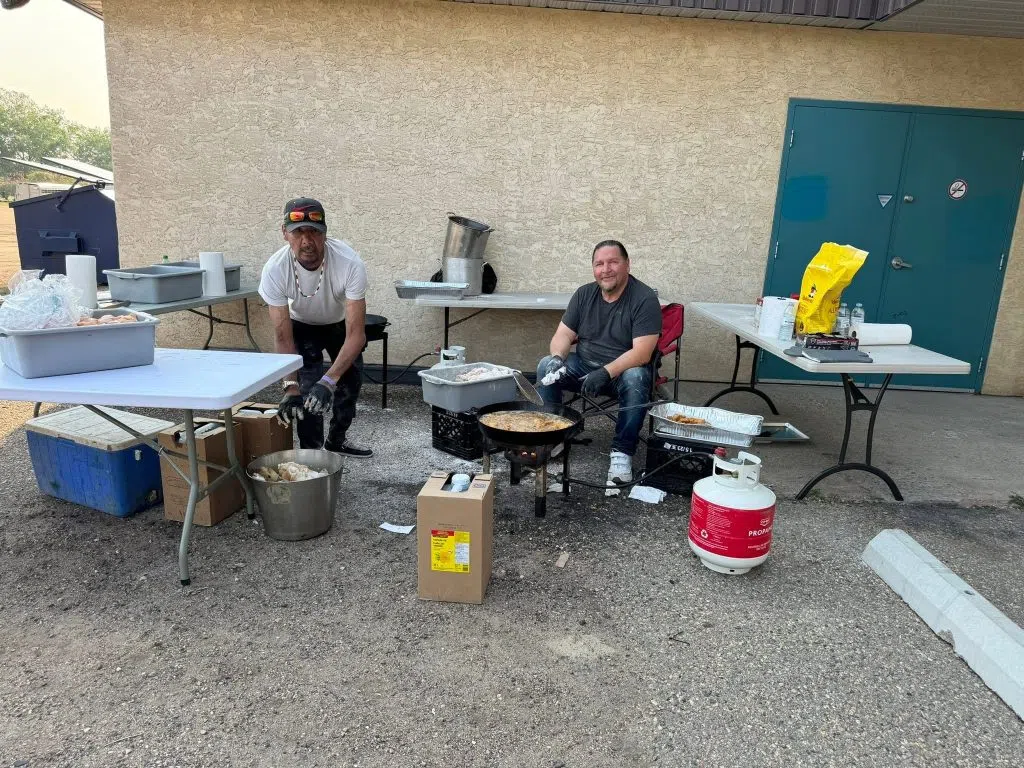
Volunteers Walter Michel (left) and George Bird frying the fish for evacuees. (Tommy Bird/submitted)
Now, he hopes more people understand why being relocated to Indigenous settings, not just urban hotels, makes a difference.
“It’s not easy for First Nations people in the city,” Bird said. “But when you put them somewhere that feels like home, the stress goes down.”
With some evacuees returning home, Bird is getting a needed rest. But when someone needs help, he’ll be there fishing, frying and feeding.
